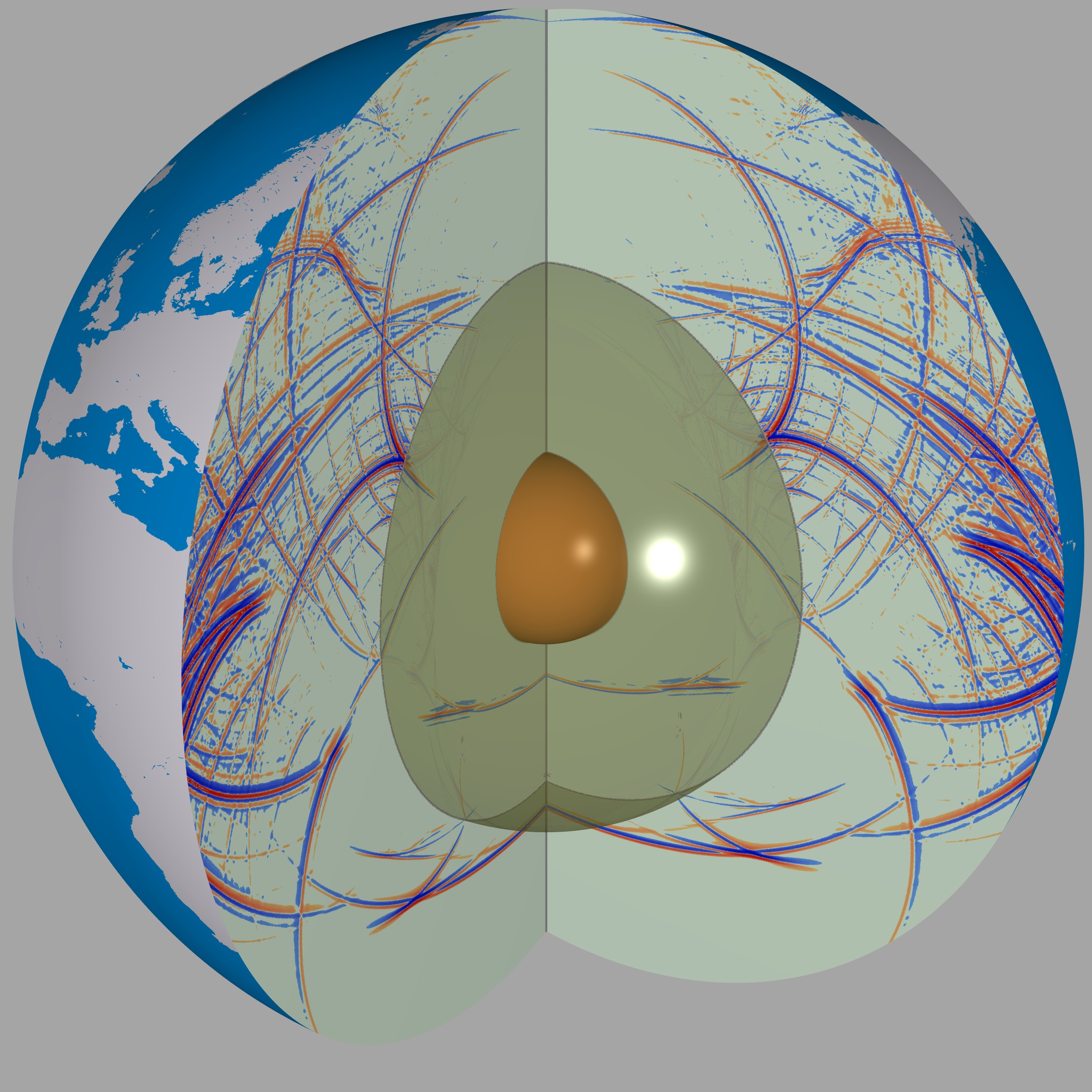This class covers the mathematics of inverse problems for wave propagation with examples taken from reflection seismology and synthetic aperture radar. The course is suitable for graduate students from all departments who have affinities with mathematics.
Topics:
Review of wave equations, Linearization via the Born approximation, adjoint-state equations, geometrical optics and Kirchhoff migration, generalized Radon transforms, microlocal analysis of singularities, sampling and resolution. Special topics depending on the audience's interests: elements of quantum inverse scattering theory, model velocity estimation, bayesian regularization and sparsity, time reversal in random media.
Class notes for September, October, and November-December.
There is not one textbook. The material will be inspired from various sources.
- For radar imaging, see the review article by Margaret Cheney as well as her upcoming book on the mathematics of radar imaging.
- For seismology, see the review notes "Mathematics of reflection seismology" by Bill Symes (find it on google scholar).
- For the introductory treatment of wave equations, I've used "Partial differential equations" by L.C. Evans, "Introduction to partial differential equations" by G. Folland, "Partial differential equations" by F. John, "Linear and nonlinear waves" by G. Whitham, and also the "Notes on the algebraic structure of wave equations" by Steven Johnson.
- For geometrical optics, I like "Lectures on geometrical optics" by J. Rauch. For microlocal analysis, I will probably stick to the treatment in "Fourier integrals in classical analysis" by C. Sogge.
Prerequisites: Some undergraduate familiarity with partial differential equations, Fourier transforms, distributions (the Dirac delta), linear algebra and least squares, as well as some basic physics. You can take this class in such a way that no knowledge of computer programming is necessary.
For a quick run through some of the prerequisites, I must say that wikipedia may actually be right on target. Chapter zero of Folland's "Intro to PDE" is good for a review of the Fourier transform and distributions. If grad, div, curl are an issue, you can open "Vector calculus" by S. Colley (freshman class). If you'd like to brush up on your PDE from a not-too-mathematical source, a good book is "Partial differential equations" by W. Strauss.
We will meet T-Th from 2:30 pm to 4 pm in room 2-143 (changed from 56-191). Instructor: Laurent Demanet. Contact info. Office hours: please try to see me right after class, or else email.
The first class will be on Thursday September 10.
A choice will be offered to either (1) read an article and give a short presentation in class, or (2) contribute some software to extend the capabilities of an existing toolbox, or (3) solve a few math problems chosen from a list.
Homework problems: October 4 version, November 3 version, December 3 version. Rule of the game: you receive A for the class if you solve at least four problems fully and correctly. Plan accordingly in case you are not 100% sure that your answers are correct. Partial progress on a problem does not count very much toward the total of 4. Discussions with others are fine, but write your own solutions.
Some advanced papers, list in construction. Some may be adequate for a class project: consult with me first.
- R. Lewis and W. Symes, On the relation between the velocity coefficient and boundary value for solutions of the one-dimensional wave equation. Inverse Problems 7 (1991) 597-631.
- Gregory Beylkin, Imaging of discontinuities in the inverse scattering problem by inversion of a causal generalized Radon transform, J. Math. Phys. 26, 99 (1985); doi:10.1063/1.526755
- A. P. E. ten Kroode, , D. -J. Smit and A. R. Verdel, A microlocal analysis of migration, Wave Motion, Volume 28, Issue 2, September 1998, Pages 149-172
- Alfred M. Bruckstein, Bernard C. Levy and Thomas Kailath, Differential Methods in Inverse Scattering, SIAM Journal on Applied Mathematics, Vol. 45, No. 2 (Apr., 1985), pp. 312-335
- Gelfand, I. M. and Levitan, B. M. (1951). On the determination of a differential equation from its spectral function, Amer. Math. Transl. 1(2), 239253. (Israel Gelfand passed away on Oct 5, 2009, at the age of 96.)
- A paper on dispersion relations and causality (mathematical physics).


